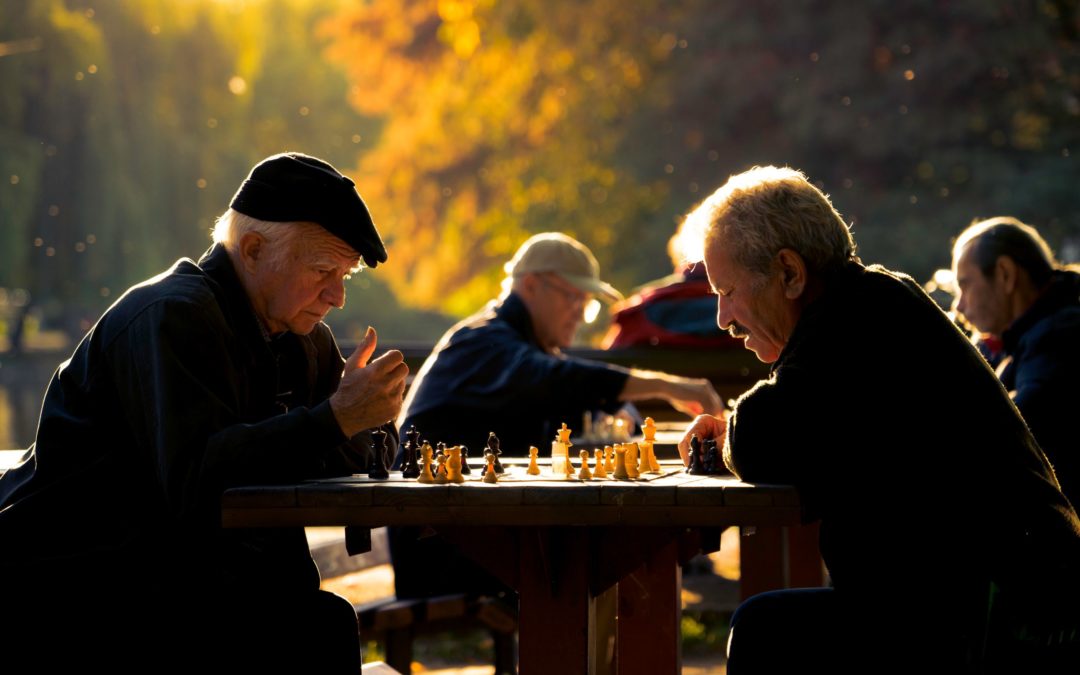Maintaining fitness and eating a balanced diet is a well-known way to stay physically healthy as you age, but what can you do to help protect yourself against mental disease? Less is known about what to do and how to reduce the chance of you being diagnosed with age-related mental illnesses such as Alzheimer’s and dementia. However, the World Health Organisation has reported that there are approximately 50 million people living with dementia worldwide and that there are nearly 10 million new cases every year. Also, due to improvements in general healthcare, we are living longer and longer with each generation, which means that we are all living with the possibility of being diagnosed with dementia. In fact, according to The Telegraph, seven in 100 people will develop dementia after the age of 65.
While there are plenty of studies being carried out on memory-related illnesses, there still is no cure yet; however, there are ways that you can reduce the risk of developing it and they’re not difficult to work into your lifestyle as usual.
Stay socially active in your 50s and 60s
A lot of people tend to slow down as they enter middle age; it could be because the kids have moved out, or they’re approaching retirement, or that physically they’re less fit and keen for a social life. It turns out this is terrible news for your brain as you get on in years. A recent study, using data gathered between 1985 and 2013 from more than 10,000 adult participants, has revealed that being more socially active during middle age is associated with a reduced risk of developing dementia later on. According to the senior author of the study and Professor at University College London, Gill Livingston, those “who are socially engaged are exercising cognitive skills such as memory and language, which may help them to develop cognitive reserve – while it may not stop their brains from changing, cognitive reserve could help people cope better with the effects of age and delay any symptoms of dementia”.
You might wonder what constitutes an ‘active enough’ social life to actually make an impact. It is said that 60-year-olds who saw their friends almost daily were 12-percent less at risk of being diagnosed with dementia when compared to adults who only saw their friends once in a while. Social contact benefits you by building your cognitive reserve, or brain resilience, against the damage that happens during neurodegeneration as you age. A professor of neurodegeneration at the University of Edinburgh, Tara Spires-Jones, explains: “Learning new things builds connections between brain cells, and so does social contact. The biology underlying this study is that the people who are socially active keep their brains better connected. If you have a better-connected network in your brain, it can resist pathology for longer.”
According to Clive Ballard, a professor of age-related disorders at the University of Exeter, it is now widely believed that up to 35% of the risk for dementia is explainable by medical and lifestyle factors, which are very often reversible, and because we are paying more attention to prevention methods we are seeing a slight reduction with each age band in the last 10 years.
How to be more socially active
Not everyone finds it easy to maintain a social life in their 50s and 60s, especially if their friend circles are not very large or accessible, however, there are ways to keep busy and mentally active later on in life. There are a number of community-led social events that are aimed at including either all ages or specifically retired community members, such as the U3A. The University of the Third Age (U3A) is an international movement that focuses on the education and stimulation of mainly retired members of the community. The model includes field trips, events, and a number of courses.
If that isn’t for you, perhaps something more outdoorsy such as joining a walking or hiking group, or perhaps volunteering as a marshal every weekend for something fun and social like Parkrun. Getting involved in something in your community is the best way to keep busy, both physically and mentally, and helps to widen your circle of friends.
